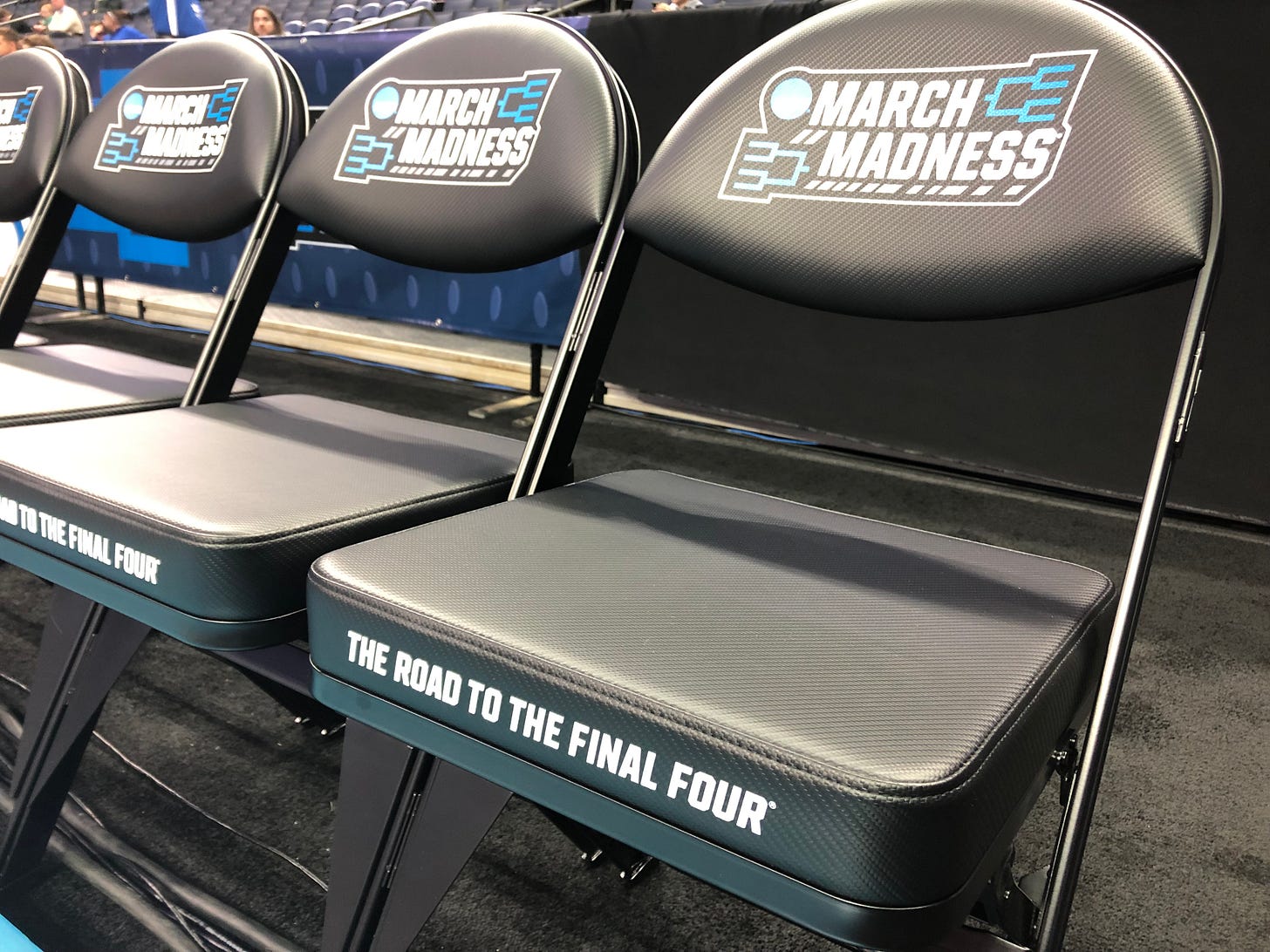Simple, but not easy: extraordinary consistency is a must to get to the top
Listening to dozens of hours of Westwood One's coverage makes the broadcasters' consistency during marathon sessions really stand out

It’s been a while since I’ve had the thrill of calling an NCAA Tournament game. We haven’t been to the Big Dance since 2019 at Washington, and it’s kind of amazing to me to think that in my 11 years as the voice of a “Power 4” basketball school, those two games over one weekend in Columbus, Ohio in 2019 is the extent of my March Madness experience.
Calling the NCAA Tournament is special. What’s even cooler is how inclusive it is. Think about it: 68 men’s and women’s basketball teams (and their broadcast crews) get to make it onto a national championship bracket. That’s 136 teams overall. And you don’t have to call games for a juggernaut to get there, which is part of the charm of the event. Truly, if you can get your foot in the door at a program and hang around long enough, there’s a really good shot (if you haven’t already) that you, too, could one day call a March Madness game.
But wouldn’t it be cool to call six March Madness games every year?
There’s only a couple ways to do that: become the once-in-a-generation voice of a blueblood, or get picked up by the national networks. I’m not exactly sure what seems harder to pull off.
Listening to NCAA tournament coverage on Turner Sports and Westwood One over the last couple of weeks has reminded me of something that I almost continually lose sight of when analyzing my own work. I think we all want to find a way to stand out—to have that perfect catchphrase or magical line in the special moments—but when you listen to hours and hours of national coverage of some of the biggest events, what you realize is the people broadcasting those games are exceptionally elite at the fundamentals.



